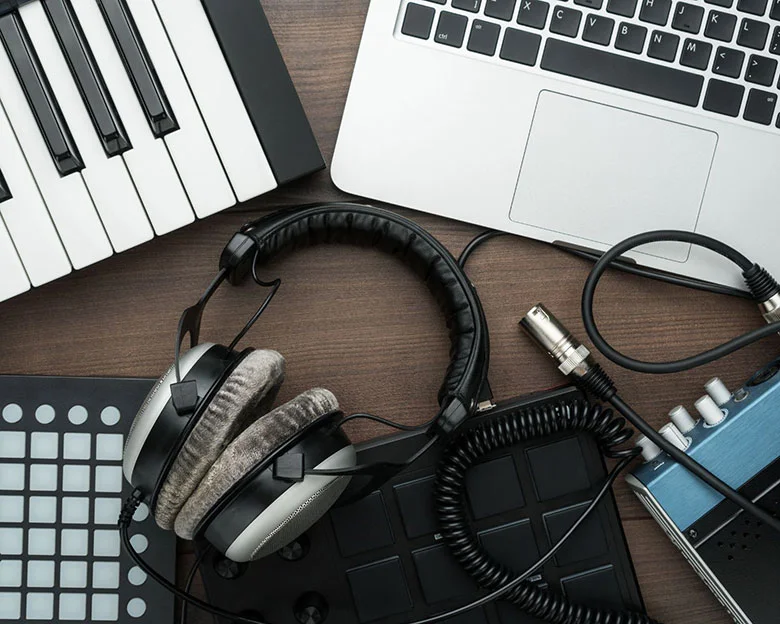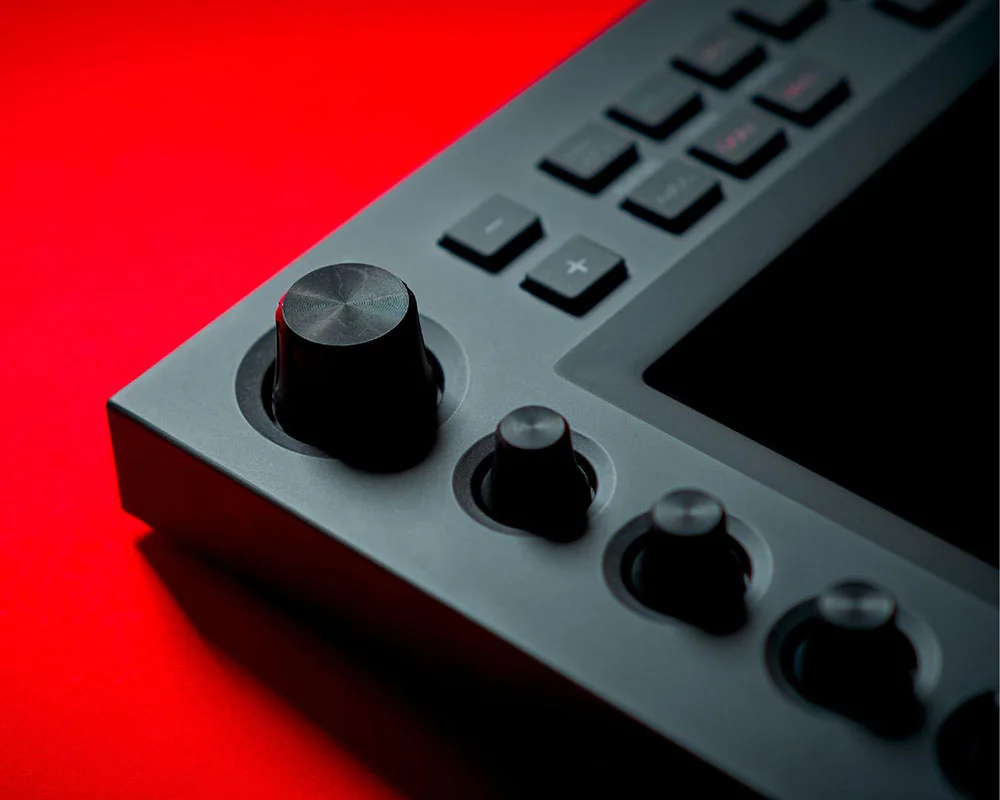Are you looking for a new hardware sampler for your music production? We’ve reviewed all of the most important criteria for your selection: budget, user feedback and, or course, the tech features to choose the best of the Top 12 Hardware Samplers for 2023.
Read on to find all the information you need to choose the best hardware sampler for your studio!
[affiliatable id=’212855′]
[affiliatable id=’212872′]
[affiliatable id=’212876′]
[affiliatable id=’212878′]
[affiliatable id=’212879′]
[affiliatable id=’212881′]
[affiliatable id=’212882′]
[affiliatable id=’212883′]
[affiliatable id=’212884′]
[affiliatable id=’212885′]
[affiliatable id=’212886′]
[affiliatable id=’212887′]
[affiliatable id=’212888′]
How to Choose the Right Hardware Sampler

Choosing the right hardware sampler for beat-making and music production involves several key considerations: budget, personal needs and preferences, sampler specifications and features, and user reviews and feedback.
Your budget
Budget is a critical factor when selecting a hardware sampler. High-end samplers like Roland SPD-SX PRO, Native Instruments MASCHINE+, and AKAI Professional MPC X SE offer top-end features and are regarded as some of the best samplers available, but they come at a premium. For those with a tighter budget, the Elektron Model Groovebox or Korg Drum Machine are excellent choices, providing substantial sampling capabilities without a hefty price tag.
Your needs and preferences
The choice of sampler should align with your musical goals. If live performance is a significant part of your career, look for portable, durable samplers designed for on-stage use. These performance samplers might include features like robust build quality and efficient audio output. For studio production, prioritize samplers with comprehensive controls and diverse sound processing capabilities, allowing for intricate manipulation of each piece of audio.
Specifications and features of each sampler
When comparing samplers, consider their sampling capabilities, such as sampling time, pitch shiting and how samples are recorded, sequencer options, and the overall workflow they offer. Examine whether each model allows for detailed manipulation of sample tracks, like pitch shifting or time stretching, and if it includes features like velocity-sensitive pads for dynamic beat-making. Also, evaluate the user interface for intuitiveness, the sampler’s build quality, and the variety of audio output options it provides.
Whether you are looking for a standalone sampler and sequencer or a software sampler that integrates with your digital setup, it’s essential to choose one that resonates with your style and preferences in music production.
In summary, the right hardware sampler for you depends on a balance of budget, personal needs, specific features, and real-world user experiences. Whether you’re just starting in music production or looking to upgrade your existing setup, carefully consider these aspects to find the sampler that best suits your creative journey.
FAQs
1. Can I use a hardware sampler without a computer?
Absolutely, many of the best samplers of 2023, such as the Akai MPC One, Elektron Model Groovebox, and Korg Drum Machine, allow users to sample directly into the device without the need for a computer. These standalone hardware devices come with SD card slots for easy audio input, making them perfect for on-the-go music making. For example, the Akai MPC X SE is known for its performance pads and the ability to handle eight stereo audio tracks, offering a great deal of versatility and control in the process of sampling.
2. How does the sequencing feature work on these samplers?
Samplers like the Akai Force and others typically feature a built-in step sequencer, allowing users to arrange MIDI tracks by creating patterns and sequences directly on the device’s touchscreen controller. This feature is integral to the music production process, offering a hands-on approach to creating music and manipulating samples.
3. Do I need additional software to operate these devices?
While some samplers, like the MPC Live II, benefit from proprietary software like MPC 2.0 for enhanced Digital Audio Workstation (DAW) capabilities, many models are designed to be effective without additional software. This feature highlights the practicality of these hardware devices, enabling users to focus on the creative aspects of music production, like working with samples and audio tracks, without being tied to a computer.
4. Are there compact options available too?
Certainly! For those looking for a more compact piece of hardware, options like the Elektron Digitakt 8-Track, Roland SP-404MKII, and Native Instruments MASCHINE+ are ideal. These models are designed for portability, making them suitable for musicians and producers who are constantly on the move. Despite their smaller size, they don’t compromise on quality, offering top-end features such as performance pads and the ability to record hours of audio, essential for the modern music creator.
Final Verdict
Our list of the top 12 hardware samplers for music production in 2023 offers a wide range of options to suit every producer’s needs. Whether you’re looking for versatility, portability, or intuitive interfaces, there is a sampler on this list for you.
After careful review and testing we selected the Electron Model Groovebox and the Korg Drum Machine as number one and two on our list because of their lightweight designs and high customer ratings and we highly recommend them for any music producer. Check them out and see if they fit your needs!
[affiliatable id=’212871′]
Before you go…
Finding the best hardware sampler is just one of the many pieces of equipment you may need in your music career.
Read our other articles on finding the best music gear for your studio




so i decided to dive into hardware samplers and this guide was a good start. still kinda confused about what specs are crucial for my bedroom studio tho. any advice?
Alex.G, focus on sample rates and memory capacity for starters. It makes a big difference if you’re layering sounds or working with longer samples.
@Alex.G, don’t forget about connectivity! Midi in/out can be super useful if you want to integrate it with other gear.
Can someone explain how the sequencer stuff works? I bought one of these but its like reading a foreign language trying to use it.
these samplers are great till you spend all night tweaking knobs only to realize your track sounds like a broken robot hahaha anyone else?
I still think for the money, software samplers offer more. But I get the appeal of hardware, it’s just not practical for everyone.
Disagree, SynthJunky. The tactile feel of hardware samplers adds a lot to the creative process that software can’t replicate.
love the idea of getting one of these to add some unique sounds to my songs Daniel’s guide made it seem a lot less daunting
does anyone know if these can work well with electronic drums looking to expand my setup n this seems like a cool way to add samples
Been using hardware samplers for years They offer a raw workflow that’s hard to get with just a computer setup Daniel, nice job on covering the basics